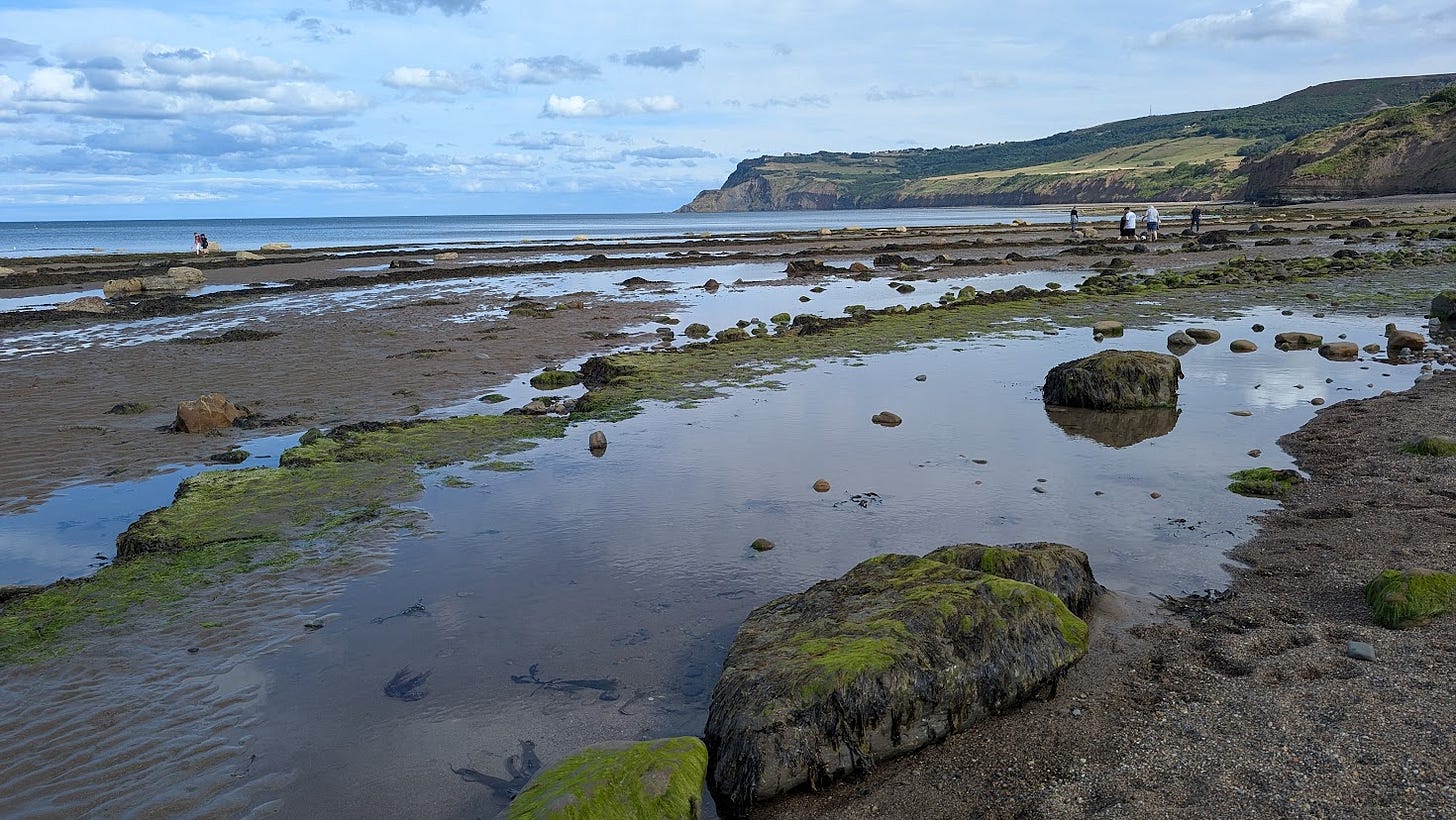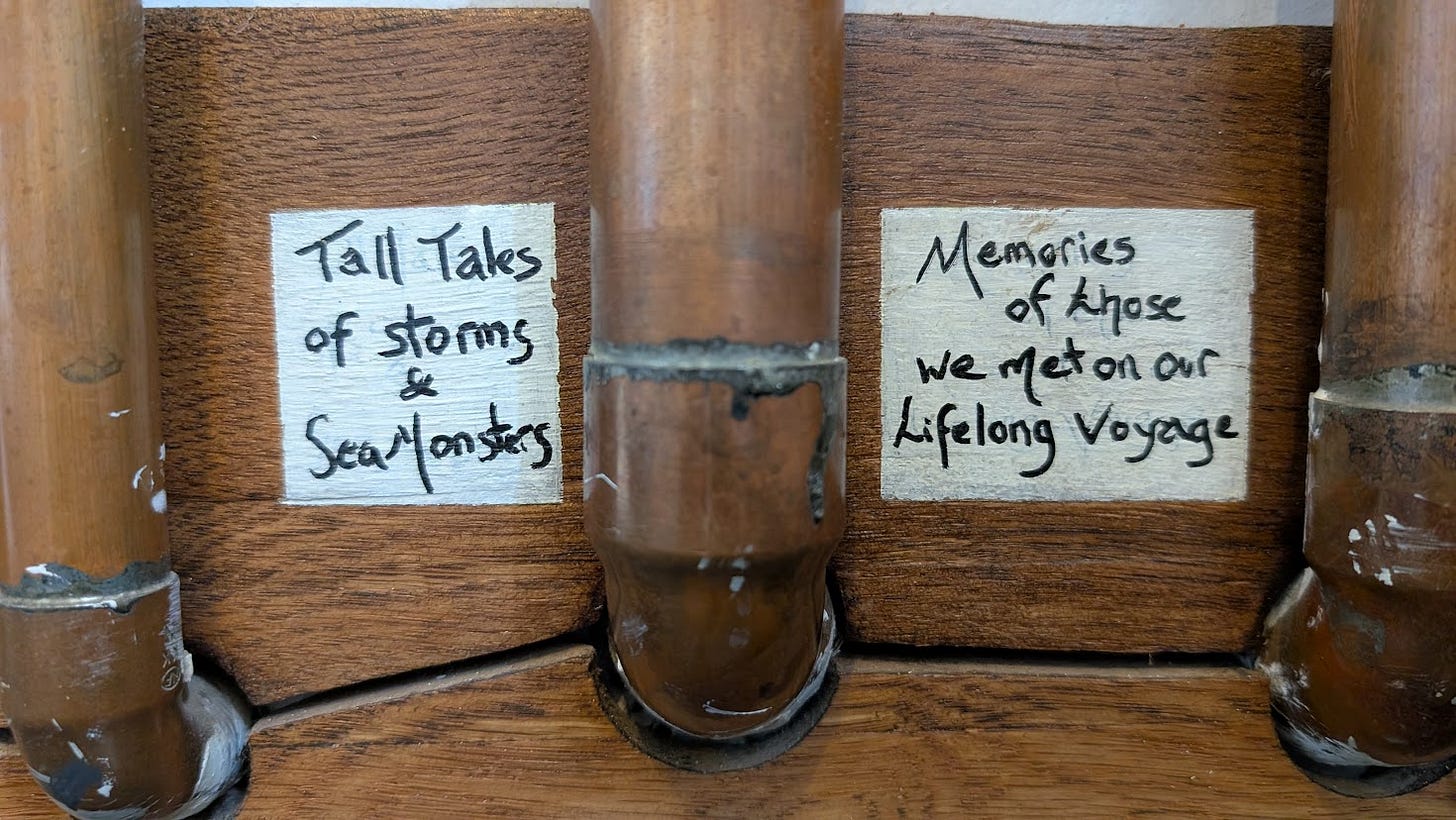welcome | book guides | slow reads | library
Footpaths is a journal on reading and writing at Footnotes & Tangents. Edit your notification settings here to get Footpaths in your inbox.
Last Friday, we drove down to Robin Hood’s Bay to spend two nights in a youth hostel right on the water’s edge. The place is pirate-themed: there is a rainbow Jolly Roger ragged in the wind; inside, glass cabinets of treasure and each room is named after a shipwreck.
The Mill Beck babbles out over sand and pebbles to the North Sea. I wonder whether Zack knows what “North” means, so I tell him if you keep north across the North Sea, you reach the North Pole. He knows what that is.
The cove is called Boggle Hole. The sea has eaten away the land and cut out a home for one of those tricksy things that live in these parts. We read that parents brought their sick children here to be cured by the Boggle. Our children are content digging holes and looking for crabs, and I say to the Boggle: Thank you for the childcare, that’ll do me.
In Possession, AS Byatt’s academic sleuths take a day off from their quest into the secret lives of Victorian poets to walk down to the Boggle Hole. Roland says, “I just want to look at something, with interest, and without layers of meaning. Something new.”
I wander the sands, listening to the last stretch of The Magic Mountain. I like the novel’s narrator, Thomas Mann’s almost apologetic tone as he tells his tale. I’m less taken by the characters and their conversation. Their disagreements and controversies on the eve of the Great War seem peculiarly distant, as though I am eavesdropping on alien life through a long and leaky ear trumpet.
Later, I finish H is for Hawk by Helen Macdonald. She grieves for her father by training a goshawk called Mabel, entering into its wildness and returning to her humanity. Near the end, she writes:
In my time with Mabel I’ve learned how you feel more human once you have known, even in your imagination, what it is like to be not. And I have learned, too, the danger that comes in mistaking the wildness we give a thing for the wildness that animates it. Goshawks are things of death and blood and gore, but they are not excuses for atrocities. Their inhumanity is to be treasured because what they do has nothing to do with us at all.
I begin to listen to The Left Hand of Darkness by Ursula K Le Guin. I cannot say exactly why this book was asking to be read, but it is unwise to ignore a book’s request.







It’s so true that books ask to be read. The Book Nerd’s art of divination.